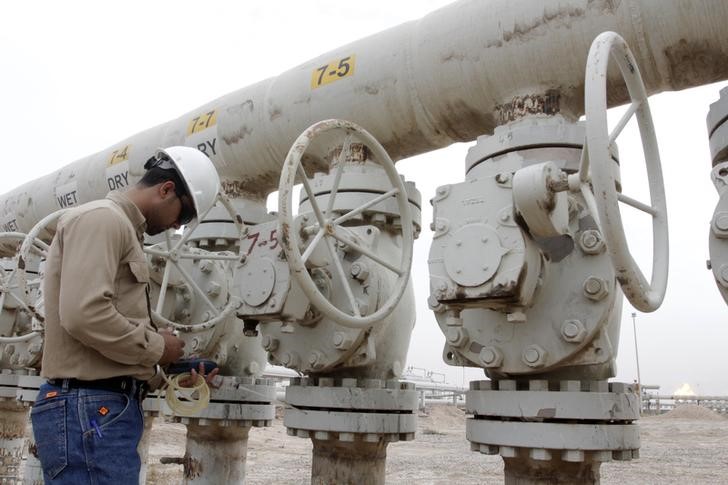Investing.com - WTI crude oil prices settled lower on Monday after OPEC revised lower its estimate for oil-demand growth next year and revealed Saudi Arabia had cut production last month.
On the New York Mercantile Exchange crude futures for September delivery fell 43 cents settle at $67.20 a barrel, while on London's Intercontinental Exchange, Brent fell 0.47% to trade at $72.47 barrel.
In its monthly report, OPEC lowered its estimate for global oil demand growth for 2019 by 20,000 barrels per day (bpd) to 1.4 million bpd, while non-OPEC oil supply in 2019 was revised higher by 30,000 bpd to 2.13 million bpd.
OPEC production for July (from secondary sources) rose 41,000 bpd to 32.32 million bpd, led by increases in Nigeria, Kuwait, Iraq and UAE. This was partially offset, however, by decreases in Saudi Arabia, Iran, Libya and Venezuela.
The rise in OPEC production comes just a few months after the oil cartel agreed to ease curbs on output restrictions, which had been put in place by the production-cut pact in November 2016 to rid excess crude supplies from the market.
OPEC agreed in June to raise output at a nominal increase of 1 million barrels a day (bpd) in an effort to stabilize oil prices and ease the threat of a global supply deficit amid expectations for a drop in Iranian exports.
The somewhat bearish OPEC monthly report on global oil demand growth paled in comparison to the International Energy Agency's report.
The International Energy Agency (IEA) on Friday raised its estimate for world oil demand growth next year to 1.5 million barrels a day (bpd) from 1.4 million bpd.
The bearish turn in U.S. oil prices, which posted their second-straight loss in a week last week, showed no sign of abating as traders increased their bearish bets on oil prices, data showed.
CFTC COT data showed money managers reduced their net long positions in WTI crude futures to 378,578 lots from 386,764 lots for the week ended Aug. 7.
